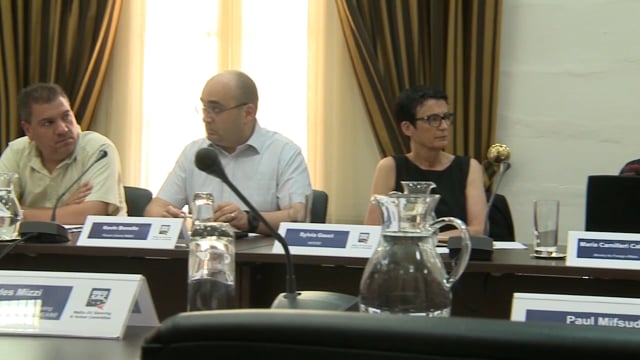[WATCH] PM says EU should give Britain some breathing space
Muscat says any decision on future British participation in the EEA framework will have to be part of negotiations on freedom of movement


Prime Minister Joseph Muscat called on the EU to give some breathing space to the UK and stop insisting on immediatelyt starting exit negotiations.
Muscat said a week was a very long time in politics and with the shaky political scene in the UK, one could not expect many quick decisions in the wake of the decision to the leave the European Union.
He was addressing a MEUSAC Core Group meeting at the Ministry for Social Dialogue and Consumer Affairs in Valletta.
Muscat said Britain should leave the exit negotiations with a fair deal, but insisted any deal could not be as advantageous as full EU membership.
"The UK cannot be given all the benfits that come with full membership or other countries could follow its example," he said.
As to claims by Leave campaign frontman Boris Johnson that Britain could seek to secure access to the single market, free movement of British workers within the European Union but border control for workers from the EU within Britain, Muscat warned that many EU countries would be sure to find fault with such concessions.
"Any decision on future British participation in the EEA framework will have to be part of negotiations on freedom of movement," he said.
Earlier Monday, Muscat said in parliament that the EU must understand the reasons behind UK’s decision to leave the union and must adapt accordingly before this led to a chain reaction in other countries.
While dismissing as elitist, claims that the elderly and uneducated were the reason behind the Brexit vote, Muscat was critical of the EU’s initial reaction.
He criticised the fact that the six founding members of the EU met alone to discuss the Brexit vote.
“This is exactly the sort of thing that should not be seen to happen,” he said. “The Europe we joined should not make a distinction between member states and the notion of having a group of founding members is purely nostalgic.”
Muscat said that new geo-political realities made such ideas obsolete.
“Having that meeting sent the wrong message,” he insisted.
Muscat said the European Union should deal with bread and butter issues and that tackles national issues in all member states in a way that is understood and appreciated by the public.
“The EU must be more flexible and must rebuild itself on strong values and principles,” he said. “It must realise that every European citizen has their own view of reality and is very often misunderstood even by their very own leaders., let alone some bureaucrat in Brussels.”
The prime minister said the EU should leave each country enough leeway to be able to decide on specific issues.
“Issues affecting Helsinki, Rome, Bucharest or Valletta should be decided by the individual countries, not Brussels.”
He also criticised the fact that the EU seems to have focused its immediate reaction on Article 50.
“This shows the EU’s state of mind; it chose to focus on technicalities when faced with the greatest political crisis in its history,” he said.
Muscat said the discussion should focus on determining what motivated the majority in the UK to vote for a Brexit, especially since he believed that those motivations were not confined to the UK alone.
As to the possible effect of Brexit on Malta, the prime minister said the government was well prepared for any challenges in the future.
“Our economic policies in the past three years led to a record growth and we now have a strong economy that can stand up to the challenges we now face.”
He said there would be no drastic changes overnight, and the status of Maltese students in the UK, for example, would not change until the UK completed the exit negotiations with the EU.
The prime minister said there was no clear decision as yet as to who would take the presidency of the EU instead of the UK which was to rotate in after Malta’s term.
Sources were suggesting that Malta’s term could be extended to 12 months, and although this was not the government’s desire, it would be open to discuss the matter, should the necessary financing and assistance be provided, he said.













.png)









